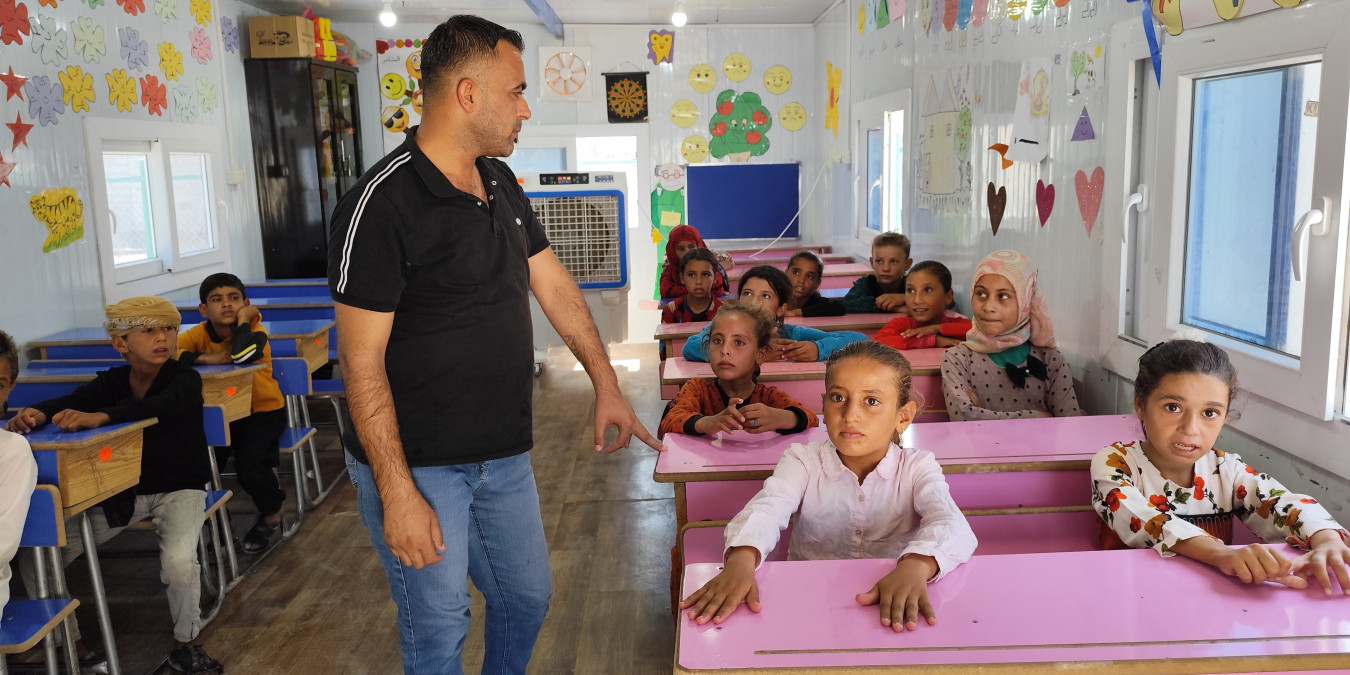We're staying here: Syrian teachers sticking around despite hardships
Published: Sep 24, 2024 Reading time: 4 minutes Share: Share an article"Arise to the teacher and give them reverence. The teacher was almost an apostle." These lines from the renowned Arabic poet Ahmed Shawky resonate with students across the Middle East, highlighting teachers' critical role in shaping the future. Yet, in times of crisis, teachers often bear the heaviest burdens—personally and professionally—while remaining steadfast in their commitment because there is no school without teachers.

"No one can replace a teacher other than another teacher," says Hamood, a 38-year-old teacher from northern Syria. Hamood began his career out of genuine passion. "I chose the Faculty of Education, specialising in Childhood Education, because I love teaching children. Their innocence captures my heart," he shares. Unfortunately, his career began just as the Syrian conflict erupted, adding another layer of difficulty to his journey as he struggled to support his family while continuing to teach.
Hamood's decision to stay in Syria and continue teaching was difficult, but his sense of responsibility to his community gave him strength. This choice, however, came at a cost. "I worked as an accountant in a bakery from 3 p.m. to midnight, in addition to my teaching job," he explains. Financial struggles weren't the only challenge. Sacrificing time with his children became another burden. "When I go home to rest, my kids want to spend time with me, play, and get help with their homework. I have to sacrifice my rest," he says, highlighting teachers' hardships in Syria today.
Being a teacher in a war-torn country comes with unique obstacles. There is no room for professional growth when over 7,000 schools are damaged, more than two million children are out of school, and many teachers have either fled or been lost to the war. The remaining educators, like Hamood, must work harder to fill the gaps in an already fragile education system. "We face many students in the classroom, with different age groups and varying abilities. It makes teaching and maintaining discipline more challenging," says Hamood. "Like most teachers, I often feel exhausted, especially during the second shift. The energy just drains out," he adds, referring to the physical toll the job takes.
The war forced many families to flee to safer areas, leaving countless children without access to school. Even for those families who return, the challenges remain. "The most difficult task is teaching individuals who missed years of schooling and are now teenagers. They don't know how to read or write, and they're often not in a good state psychologically. They feel ashamed attending classes with younger children. These students have no place in public schools, nor do they feel accepted by their communities. They feel alienated," Hamood says, describing the plight of children who rely heavily on the dedication of their teachers.
After all this effort, one might expect students to continue their education and strive for higher degrees, but reality often has different plans. "When I see some children prevented from getting an education, it saddens me. But the most heartbreaking moment comes when I see talented, disciplined students forced to leave school—whether because their parents won't let them continue or for other reasons. It's truly disappointing," Hamood reflects.
Despite the many challenges, teachers like Hamood remain motivated by their students' successes. "Whenever I see my efforts positively impact students, I feel joy. When I see children learning, playing happily, completing their education, and becoming successful examples in society, I feel immense pride and indescribable happiness," Hamood says.
Thanks to funding from the European Union, we support Hamood and other teachers in northern Syria with training, teaching materials, and psychological support, helping them carry out their essential work and ensuring their input in shaping educational policies. "They provided me with useful training and the tools I needed for teaching. They were flexible and supportive of my initiatives to promote education in line with humanitarian principles," Hamood adds.
Teachers need all the personal and professional support we can offer to keep schools open. Their role in the recovery of communities is undeniable, and they continue to make an effort for the betterment of future generations.



